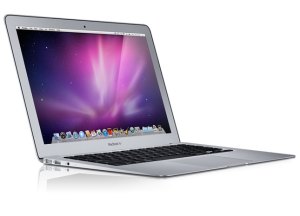
Industry analysis firms IDC and Gartner have released their market summaries for U.S. and worldwide PC sales during the fourth quarter of 2010. As always, the two analyses don’t match on every detail, but the broad strokes are consistent: the worldwide PC market saw modest growth during the fourth quarter of last year, and Apple and Toshiba in particular rung up strong sales in the U.S. market. However, the news wasn’t all rosy for Apple, with both firms dropping Apple to fifth place in the U.S. computer market—down from third place just last quarter.
Overall, Gartner found that the worldwide PC market grew by 3.5 percent during the fourth quarter: although consumer holiday sales were weak (owing in part to competition from tablets and consumer electronics), professional sales and replacement purchases helped turn the quarter positive. HP was still far and away the largest PC maker with an 18.8 share of the market—although that’s down 1.2 percent from a year ago. Acer came in second with a 12.7 percent share, Dell managed third place with an 11.6 percent share, Lenovo finished fourth with a 10.1 percent share and Toshiba rounded out the top five with a 5.7 percent share. In the U.S., the lineup is a little different: HP is still in the top slot with a 29.3 percent share (down six percent from last year), followed by Dell (22.1 percent), Acer (11.1 percent), Toshiba (10.3 percent) and Apple (9.7 percent). However, in the U.S. market only Apple and Toshiba saw year-on-year growth (23.7 and 14.4 percent, respectively): all other manufacturers saw their shares drop year-to-year, with Acer leading the way down with a 30.4 percent decline.
IDC’s figures for the fourth quarter of 2010 are similar…but not exactly the same. IDC agrees HP is the largest computer maker for the quarter (with a 19.5 percent share representing a 0.9 percent year-on-year decline) but puts Dell in the number two spot worldwide with a 12.1 percent share, beating out Acer with a 10.6 percent share. Lenovo and Toshiba rounded out the top five with 10.4 and 5.8 percent shares, respectively. Both Gartner and IDC showed strong growth for Lenovo during the quarter, both agreeing the company saw year-on-year sales growth worldwide of over 20 percent. In the U.S. market, IDC’s order of the top five manufacturers also differs from Gartner: HP and Dell are still in the number one and two slots, but IDC puts Toshiba in the number three position with a 9.8 percent market share, dropping Acer to fourth place with an 8.8 share. Apple rounded out the bottom five with an 8.7 percent share. Both Gartner and IDC agree only Apple and Toshiba saw growth in the U.S. market in the fourth quarter: 15.2 percent and 14.4 percent, respectively, according to IDC.
Both analysis firms attribute sluggish growth in the PC market—particularly the U.S.—to the general economic conditions as well as “consumer fatigue,” where holiday consumers were watching where they put their technology dollars—and considering a broader range of consumer electronic items (like game consoles, portable devices, smartphones, and tablets) rather than traditional computers. Both companies expect sales of traditional PCs will likely decline to consumers in 2011 as buyers consider tablet machines as supplements to traditional PCs, potentially cannibalizing or pushing back sales of new computers. However, PC sales in professional markets were relatively healthy.
Editors' Recommendations
- Apple’s Mac shipments dived more than 40% last quarter
- Apple to keep all of its U.S. stores closed until at least May


